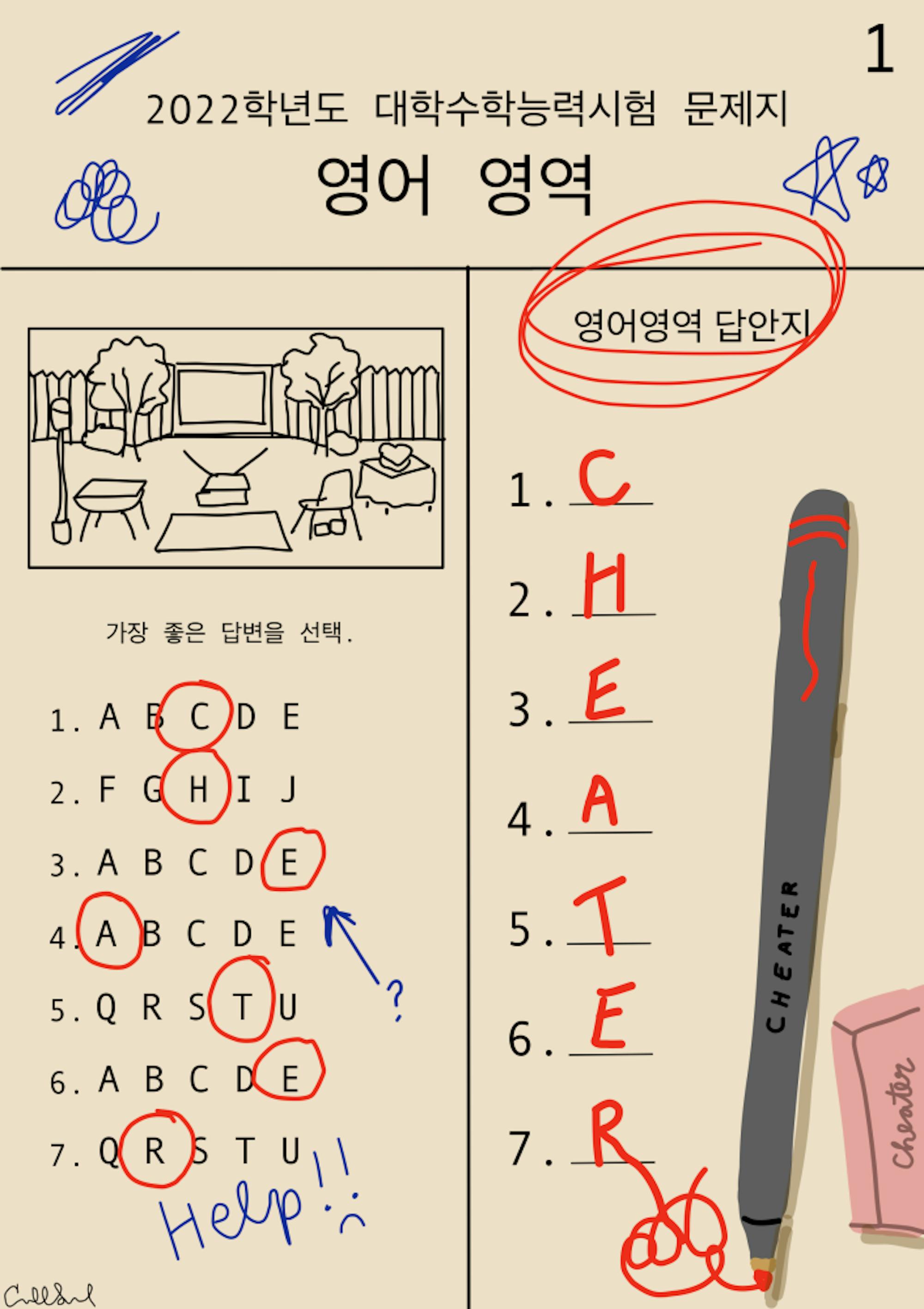Content warning: This article includes mentions of suicide.
On Thursday, Nov. 17, life as we know it will stop in South Korea, with planes not allowed to take off or land, military training suspended momentarily and banks altering their typical hours of operation.
These precautions are not taken for military or diplomatic activities. These are all for the Suneung, or the Korean College Scholastic Ability Test, which is often considered the Korean equivalent of the SAT. However, differing from the SAT, it plays a much larger role in Korean college admissions processes. China, South Korea’s close neighbor in East Asia, has a similar test called the Gaokao, or the National College Entrance Examination. It is the one test that determines the university destination of most Chinese students.
Even though the Suneung and the Gaokao are often compared to the SAT, they are more significant than the SAT in the college admissions process and in society as a whole. The SAT is only one of many factors in the U.S. college admissions process. Special measures, such as suspending military training for the SAT, are unheard of. In comparison, the Suneung and the Gaokao are seen as an important event on a national level. Each year when the Gaokao happens, news headlines and social media discussions in China are dominated by the Gaokao.
Why is there such a difference between college admissions processes in the U.S. and those in China and South Korea? South Korea and China have a “one exam determines all” system, where one exam can determine where students will be getting their higher education. Hence, it is natural for students and the government to attach the utmost importance to this exam. In South Korea, many wealthy students spend the greater part of their time in academies preparing for the Suneung. In comparison, the United States has a holistic review process in college admissions which makes standardized testing significantly less important.
The difference between education systems in many East Asian countries and the U.S. education system extends beyond the college admissions process. Many have argued that education systems in East Asian countries, including China, South Korea and Japan, tend to focus on memorization with less emphasis on critical thinking. This may explain why some East Asian students perform extraordinarily well in international tests, such as math and science olympiads. However, it can also be argued that this is only a result of intensive training in test-taking skills.
In contrast, the American education system seems to value critical thinking. Many Americans have probably had to write an essay with the typical “one argument, one counterargument” formula, with rubrics that ask for well-supported answers instead of memorized ones. The results of the difference between East Asian and American education styles appear unclear since critical thinking is an ambiguous concept and therefore difficult to measure.
Despite stark differences, a potential commonality between some East Asian and American students is a need to compete, sometimes to a toxic degree, in order to get into top universities. In many American high schools, especially high-achieving ones, students constantly feel the need to compete with each other, which can lead to mental anguish in some cases. Teenagers on the other side of the planet can feel the same way. According to a 2019 survey by the National Youth Policy Instituite, a Korean research institute, nearly 34% of South Korean adolescents have thought about suicide because of academic pressure.
This pressure, unfortunately, sometimes leads to students’ seeking illegitimate shortcuts to get good grades, such as cheating. Recently, there was a cheating scandal in South Korea, when twin girls, whose father was a school administrator, suddenly rose up to the top of the class ranking from the middle. This could increase their chance of gaining admissions to top universities and, consequently, hurt the chances of others of doing so. However, cheating is not only happening on the other side of the world. In the U.S., there was the infamous 2019 college admissions scandal, where students who might have never played the sports they claimed to play were recruited as athletes in order to get into more prestigious universities.
Despite the immense differences between East Asian and American education systems, the huge pressure to enter a prestigious university is a shared experience. Everyone who has gone through the process of college admissions has most likely felt stressed at one time or another. Despite such a big difference in the form and content of college admissions, the commonality of pressure and competition still holds for education systems on opposite ends of the Earth.
Students can reach the counselor-on-call or the dean-on-call by calling the Tufts 24/7 Help Line at 617-627-3400. Ears for Peers, Tufts’ anonymous, student-run and confidential hotline, is also available from 7 a.m. to 7 p.m., daily. Tufts’ on-campus Counseling and Mental Health Service can be found here.






